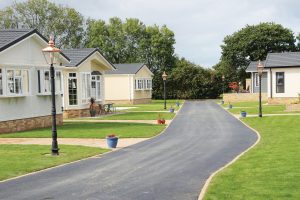Stobart Group confident despite 400% rise in interim pre-tax losses

Stobart Group today revealed a fall in interim revenues of more than a quarter, and an almost 400% increase in pre-tax losses for the six months to August 31.
It also reaffirmed its intention to exit its Stobart Air business, but reassured shareholders of its financial stability and intention to emerge from the current coronavirus crisis a stronger entity.
Turnover for the six months fell by 28.9% to £53.2m, while pre-tax losses soared from a loss last year of £15.5m to a £77.4m pre-tax loss this year, mainly due to its Stobart Air operations.
Carlisle-based Stobart said its aviation division, which includes London Southend and Carlisle Airports, has been severely impacted by COVID-19.
Passenger flights resumed from June 2020 but rolling quarantine arrangements led passenger numbers to fall by 89.5% to 124.5k passengers, with revenues down 48.9% to £13.5m.
Despite this backdrop, aviation EBITDA improved from a loss of £1.7m to a £0.9m loss due to strong uninterrupted income through the global logistics operations and lower marketing support costs at London Southend Airport.
The group said it is in positive discussions in relation to the post-Winter schedule, which starts in April 2021, and with a best-in-class passenger experience, London Southend Airport is well positioned to benefit from any recovery in the short-haul leisure travel market as restrictions ease.
Disruption to the construction industry and the closure of recycling facilities during the initial COVID-19 period resulted in a reduction of available waste wood, so the Stobart Energy business took the strategic decision to ensure certainty of supply for customers over the Winter period and beyond by building stock levels of waste wood. This action put short-term pressure on margins, and this is expected to recover in the first half of the next calendar year.
The division achieved 86.1% of the supply volumes it delivered in the six months ended August 31, 2019, and supplied 616k tonnes of fuel to biomass plants. EBITDA reduced from £10.6m to £2.4m, with the business impacted by lower supply volumes and downward margin pressures.
However, September and October 2020 gate fees and volumes show an improving trend, and the group remains focused on realising value from Stobart Energy as a maturing, cash generative and stable business over the next 18 months.
Today’s results show that trading outlook for Stobart Air has deteriorated significantly since the capital raise due to the continued quarantine arrangements in Ireland, with limited flights operating.
At the time of the capital raise in June, Stobart Group planned for a potential no-fly scenario through the Winter period and has, consequently, taken appropriate action to manage its cost base and minimise cash burn.
The group is seeking to exit the business in early course. To that end, it is engaging actively with parties interested in acquiring its stake and with Aer Lingus to enter a new commercial arrangement beyond December 2022 as part of this process.
The Stobart Group said it has £119.1m of cash and undrawn banking facilities following its £100m capital raise in June, and, within the reporting period the cash burn was reduced to an average of around £2.0m per month. Of this, about £1.9m is represented by lease and rental payments and other debt servicing costs.
The total cash burn – funding provided by the group – for Stobart Air and Propius since acquisition is around £14.7m.
In August, the cash burn for those businesses was £3.6m, of which £1.6m was legacy lease payments and £0.5m was maintenance and insurance costs.
Group losses before tax, excluding the impact of Stobart Air and Propius were £16.1m compared with £15.5m in the six months ended August 31, 2019.
However, Stobart Group incurred £68.5m of non-cash items, including a £55.0m non-cash loss on the acquisition of Stobart Air and Propius and £14.4m of depreciation. This meant the total group loss before tax was £77.4m.
Chief executive, Warwick Brady, said: “COVID-19 has created unprecedented challenges for the group.
“In response, we have taken decisive action to bolster liquidity, reduce cash burn and protect our long-term strategic objectives. These actions should allow us to emerge from this crisis in the best possible position to deliver our focused strategy.”
He said: “Whilst passenger travel has been severely disrupted by lockdowns and evolving quarantine arrangements, London Southend Airport has benefited from uninterrupted income from its global logistics operation.
“At Stobart Energy, we are seeing a more consistent demand profile and have taken appropriate actions to ensure certainty of supply of waste wood for customers over the Winter period to fulfil our valuable long-term supply contracts.
“We remain focused on realising value for shareholders from Stobart Energy as a maturing, cash generative and stable business over the next 18 months and are considering all options to achieve this.”
“Looking forward, the group has immediate access to liquidity, with £119.1m in cash and undrawn banking facilities.
“Our focus remains on what we can control, namely managing our operations well, optimising both cost and cash management and rationalising the portfolio to maximise value.
“We continue to believe our future strategy and the medium-term move to a pure play airport and aviation services business will deliver superior shareholder returns.”







